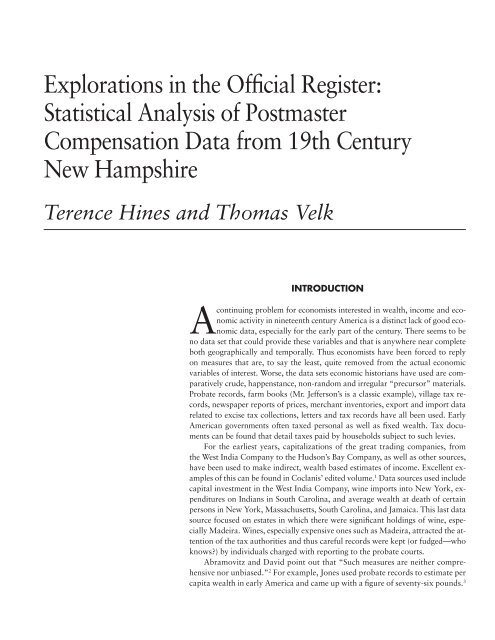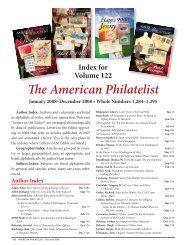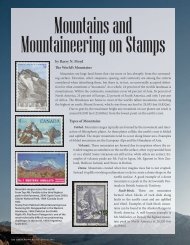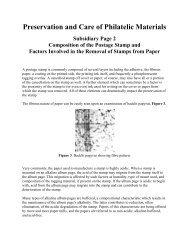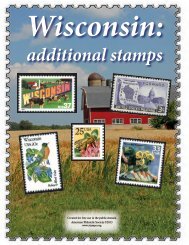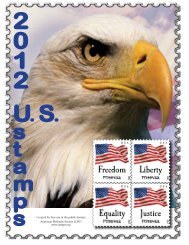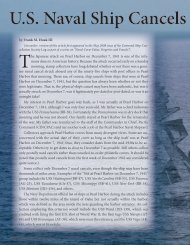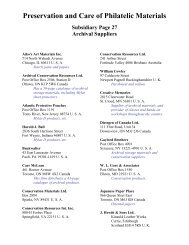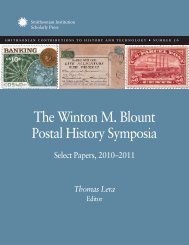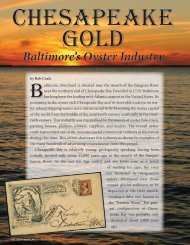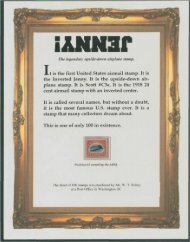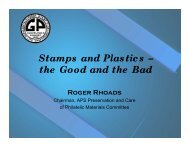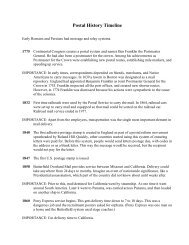The Winton M. Blount Postal History Symposia - Smithsonian ...
The Winton M. Blount Postal History Symposia - Smithsonian ...
The Winton M. Blount Postal History Symposia - Smithsonian ...
- No tags were found...
Create successful ePaper yourself
Turn your PDF publications into a flip-book with our unique Google optimized e-Paper software.
Explorations in the Official Register:Statistical Analysis of PostmasterCompensation Data from 19th CenturyNew HampshireTerence Hines and Thomas VelkIntroductionAcontinuing problem for economists interested in wealth, income and economicactivity in nineteenth century America is a distinct lack of good economicdata, especially for the early part of the century. <strong>The</strong>re seems to beno data set that could provide these variables and that is anywhere near completeboth geographically and temporally. Thus economists have been forced to replyon measures that are, to say the least, quite removed from the actual economicvariables of interest. Worse, the data sets economic historians have used are comparativelycrude, happenstance, non-random and irregular “precursor” materials.Probate records, farm books (Mr. Jefferson’s is a classic example), village tax records,newspaper reports of prices, merchant inventories, export and import datarelated to excise tax collections, letters and tax records have all been used. EarlyAmerican governments often taxed personal as well as fixed wealth. Tax documentscan be found that detail taxes paid by households subject to such levies.For the earliest years, capitalizations of the great trading companies, fromthe West India Company to the Hudson’s Bay Company, as well as other sources,have been used to make indirect, wealth based estimates of income. Excellent examplesof this can be found in Coclanis’ edited volume. 1 Data sources used includecapital investment in the West India Company, wine imports into New York, expenditureson Indians in South Carolina, and average wealth at death of certainpersons in New York, Massachusetts, South Carolina, and Jamaica. This last datasource focused on estates in which there were significant holdings of wine, especiallyMadeira. Wines, especially expensive ones such as Madeira, attracted the attentionof the tax authorities and thus careful records were kept (or fudged—whoknows?) by individuals charged with reporting to the probate courts.Abramovitz and David point out that “Such measures are neither comprehensivenor unbiased.” 2 For example, Jones used probate records to estimate percapita wealth in early America and came up with a figure of seventy-six pounds. 3


